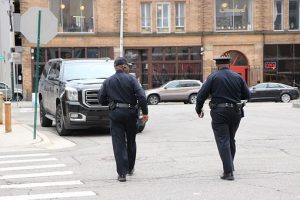New Jersey Civil Service Commission Not Afraid to Call B.S. on Employers
In my last post I wrote about the Appellate Division case of In the Matter of Ambroise, which demonstrated that employees will get a fair hearing before the New Jersey Civil Service Commission and in appeals to state appellate Courts. Another recent Appellate Division opinion  in the case of In the Matter of Christopher Dunlap, Fire Fighter (M1838W), Township of Hillside shows that the Civil Service Commission and Appellate Division are not afraid to call B.S. on employers when the situation warrants.
in the case of In the Matter of Christopher Dunlap, Fire Fighter (M1838W), Township of Hillside shows that the Civil Service Commission and Appellate Division are not afraid to call B.S. on employers when the situation warrants.
Background
Christopher Dunlap passed the civil service examination for firefighter, and his name was placed on the eligible list. His name was certified for employment with Hillside Township. He completed the application process, but was rejected by the Township for allegedly making a “material misrepresentation” on his application. Making any “material misrepresentation” in the hiring process will cause an applicant to be removed from the eligible list. The Township said that he failed to disclose juvenile charges against him. Facts are everything, so I will quote at length from the Appellate Division’s decision.
 New Jersey Lawyers Blog
New Jersey Lawyers Blog




 cases.
cases. progressive discipline in the context of a
progressive discipline in the context of a  employee before discipline may be imposed.
employee before discipline may be imposed. Against Discrimination has been amended many times since then to expand the protections against discrimination in employment, and decisions by New Jersey courts have interpreted the Law to provide much broader protections than those provided by similar Federal statutes such as the Federal
Against Discrimination has been amended many times since then to expand the protections against discrimination in employment, and decisions by New Jersey courts have interpreted the Law to provide much broader protections than those provided by similar Federal statutes such as the Federal  full-time position in the case of
full-time position in the case of  Jersey State Prison.
Jersey State Prison.